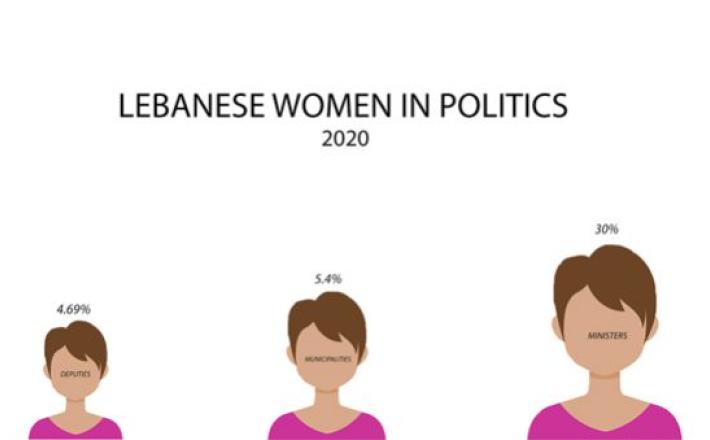What’s needed for real changes for women in Lebanese politics?
Source: IPS News
Women were at the forefront of Lebanon’s 2019 ‘October Revolution’. Beyond the iconic images of their participation, it seems that by women linking equity in politics to the broader issues of mismanagement of corruption paid off – although activists say there is a long road ahead.
In May 2018 saw the election of six Lebanese women to parliament from 86 female candidates. Following the October 2019 uprising, that started to change the equation within the political system and under the continued pressure of the civil society, a new cabinet was formed. It included six female ministers out of 20.
From a general perspective, this seems like a win for achieving gender equality, considering that 30% of the actual cabinet is female. Lebanon, a democratic republic in the Middle East, is deemed to have acknowledged the role of women and started to include them in the political field.
However, from a Lebanese perspective, questions arise whether this achievement is a veneer to please the streets and Western donors in a crumbling country?
Rouba El Helou-Sensenig, coordinator of the gender, communications and global mobility studies at the Faculty of Law and Political Science at Notre Dame University in Lebanon, is not convinced this change is enough.
“Even though the Lebanese government signed international agreements related to advancing women’s rights and their participation in political life, I believe that the Lebanese government is not serious about reaching gender equality,” she says.
Click here to read the full article published by IPS News on 2 March 2020.

Women were at the forefront of Lebanon’s 2019 ‘October Revolution’. Beyond the iconic images of their participation, it seems that by women linking equity in politics to the broader issues of mismanagement of corruption paid off – although activists say there is a long road ahead.
In May 2018 saw the election of six Lebanese women to parliament from 86 female candidates. Following the October 2019 uprising, that started to change the equation within the political system and under the continued pressure of the civil society, a new cabinet was formed. It included six female ministers out of 20.
From a general perspective, this seems like a win for achieving gender equality, considering that 30% of the actual cabinet is female. Lebanon, a democratic republic in the Middle East, is deemed to have acknowledged the role of women and started to include them in the political field.
However, from a Lebanese perspective, questions arise whether this achievement is a veneer to please the streets and Western donors in a crumbling country?
Rouba El Helou-Sensenig, coordinator of the gender, communications and global mobility studies at the Faculty of Law and Political Science at Notre Dame University in Lebanon, is not convinced this change is enough.
“Even though the Lebanese government signed international agreements related to advancing women’s rights and their participation in political life, I believe that the Lebanese government is not serious about reaching gender equality,” she says.
Click here to read the full article published by IPS News on 2 March 2020.